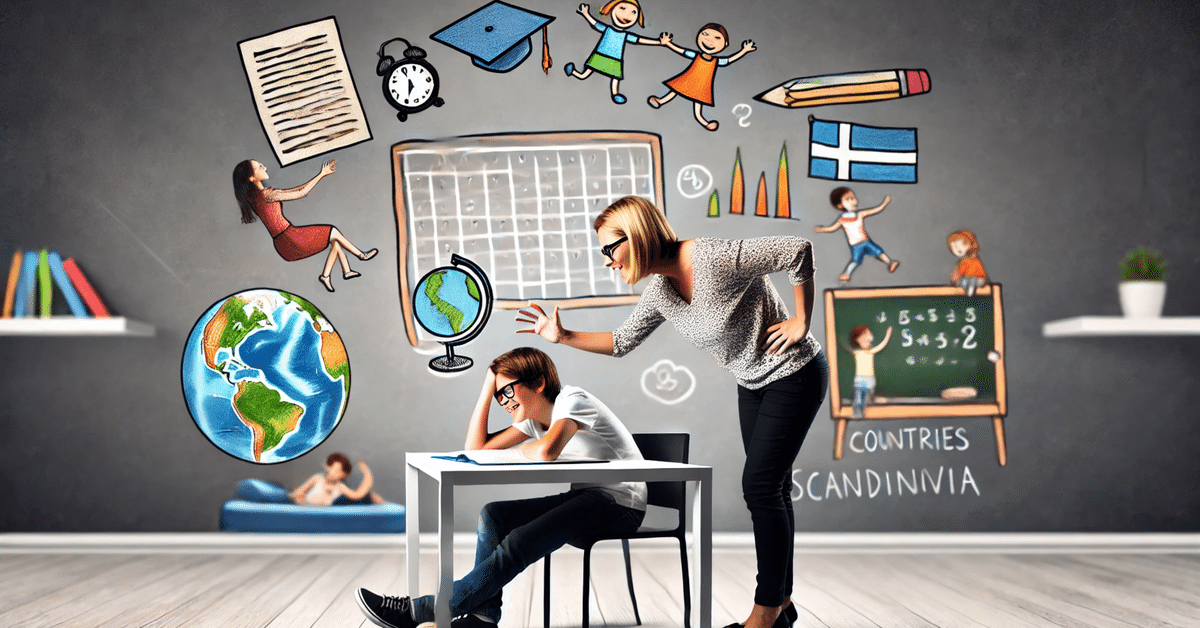
The Helicopter Parent's Dilemma: Raising Adults or Raising Drones?
You’ve seen them. They hover. They monitor every homework assignment. They’ve mapped out their child’s future with military precision: perfect grades, elite university, high-paying job, and maybe even world domination (if time permits). These are the education-obsessed parents, the ones who seem to believe that they alone hold the keys to their child’s success.
But here’s the million-dollar question: Are they actually helping? Or, in their attempt to craft the perfect child, are they simply raising dependent drones who can’t think for themselves? Does a child benefit from all this pressure, or are we ignoring a basic truth—that kids are people too?
Let’s explore this age-old conundrum with a bit of sarcasm, some international flavor, and maybe even a dash of reality.
Kids: Miniature Adults or Incomplete Projects?
First things first: are kids fully-formed individuals, or just mini-adults in training? There’s a school of thought that suggests children should be treated as independent beings with their own rights, needs, and desires. Crazy idea, right? But before you laugh this off, let’s consider what that would mean.
In Japan, where education is practically a national sport, parents are notorious for pushing their kids to achieve. Juku (cram schools) are a staple of life for many Japanese children. These kids study hard all day at school, and then go to juku at night. They’re lucky if they get to bed before 11 PM. Is this molding responsible, independent adults, or is it setting them up to rely on someone else to always tell them what to do?
Meanwhile, across the Pacific in the United States, the trend of helicopter parenting continues to dominate. Little Timmy has his schedule planned out from morning yoga at age five to college tours at age ten. God forbid he ever learns how to make a decision for himself—his parents have already made them all. So where does that leave us? Are we raising future leaders, or just over-scheduled kids who think burnout is normal?
The “Perfect Parent” Illusion: Is All That Effort Necessary?
Let’s get one thing straight: parents want the best for their kids. But when does helping your child cross the line into living vicariously through them? In South Korea, another education heavyweight, parents often invest in hagwon (private academies) to ensure their children excel. The pressure is relentless, with some kids spending more time in hagwons than they do at home. But are these parents nurturing their child's potential, or simply creating the next generation of exhausted salarymen and women?
And then there’s Europe, where the education system tends to be a bit more… shall we say, relaxed? Scandinavian countries, for instance, focus on letting kids be kids. School hours are shorter, playtime is plentiful, and kids are encouraged to explore the world at their own pace. There, it’s all about developing well-rounded individuals, not just mini-geniuses who can ace a math test.
Which begs the question: Is the ultra-strict, results-driven model actually beneficial? Or should we be focusing on the child as a human being, not just as a future investment?
Are Parents Raising Adults or Robots?
This brings us to the next point: autonomy. Shouldn’t kids learn how to make decisions on their own? Isn’t part of growing up figuring out that sometimes you fail—and that’s okay? When parents constantly micromanage their children’s every move, they run the risk of turning them into hyper-dependent adults who panic at the first sign of uncertainty. You can’t send your mom to your first job interview, after all. (Though some parents have probably tried.)
Take the French, for example. They believe in nurturing independence from a young age. French children aren’t praised for everything they do, and their parents aren’t constantly hovering. This approach teaches them to be self-reliant, capable of navigating life’s challenges without breaking down. In contrast, some other countries (you know who you are) turn their kids into over-protected cocoons, terrified of making a wrong choice.
Now, imagine a world where children are allowed to fail occasionally. What a concept! A world where they could fall, scrape their knee, and gasp—learn something from it! We’d call this preparing for adulthood, but hey, what do I know?
So, What’s the Right Approach?
Look, no one is saying that education isn’t important. We all want to raise smart, successful kids. But the truth is, maybe—just maybe—we’ve become a little too obsessed with molding them into something they’re not yet ready to be.
Instead of raising future CEOs at age five, how about we let kids be kids? They’ll have plenty of time to face the pressures of adulthood. Maybe the best thing we can do is give them the tools to navigate life’s ups and downs on their own, rather than scripting their every move.
After all, if we keep treating kids like projects to be completed, we might wake up one day and realize we’ve raised robots who can’t think for themselves. And where’s the fun in that?
The Final Word: What’s Really Best for Kids?
At the end of the day, every parent is doing what they think is right. Some prefer to guide with a firm hand, while others let their kids roam free. But if we’re being honest, maybe there’s a middle ground. Perhaps we need to trust that children are more capable than we give them credit for—and that by stepping back, they might just surprise us.
In the end, it’s not about raising the perfect child. It’s about raising a person who can think, grow, and adapt on their own. Someone who knows how to fall and get back up, not because mom or dad is there to pick them up, but because they’ve learned how to do it themselves.
So, whether you’re a helicopter parent, a juku-obsessed mom, or a laid-back Scandinavian, remember: kids aren’t mini-adults—they’re just kids. And maybe that’s exactly what they need to be.
【参考】
Helicopter / Maisie Peters
https://youtu.be/jfiP-5vhac8?si=Sv0Mor4Nn4SS_-s7
この記事が気に入ったらサポートをしてみませんか?
